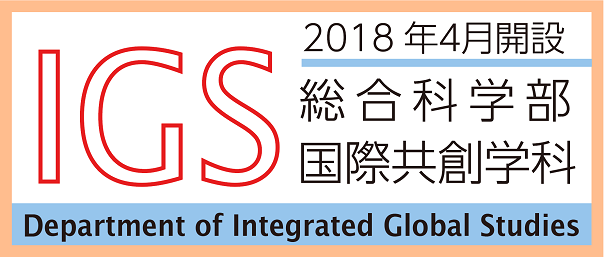The Three Divisions and 21st Century Science Projects
Our graduate school consists of a single program with three main study areas in order to promote integration and collaboration across the academic fields. In addition, we also offer 21st Century Science Projects intended to practice interdisciplinary and comprehensive approaches. Students complete their Master’s program in two years and the Doctoral program in three years on average.
Human Sciences
Human Sciences consists of five research areas and explores human nature in order to deepen our understanding how human beings relate to civilization and the environment. Faculty members research the fundamental inquiry of “what are human beings?” with different perspectives including natural science and humanities such as life science, neuroscience, psychology, sports science, linguistics, philosophy, ethics, aesthetics, and the arts.
Environmental Sciences
The division of Environmental Sciences studies the natural and social environments, and material and information sciences to understand our living "environment" by means of "Integrated Arts and Sciences." In this division, we explore how the environment has been shaped by natural and anthropogenic impacts as well as the question how we would mitigate these impacts on environments by way of a comprehensive examination of the various risks faced by our modern society.
Cultural Sciences
In the division of Cultural Sciences students study various aspects of cultures and civilizations which, with the unique histories of the areas In the background, continue to clash and open a dialogue. Our division deals with conveying the intellectual properties of mankind and is comprised of two fields: the field of Cultural and Historical Studies which looks into the aspects and dynamics of civilizatlons and cultures that transcend regions, as well as pursues comparative studies of cultures, and the field of Area Studies which focuses on the regions’ unique cultural characteristics and expansively explores regional cultures.
Division Structure
| Division | Field | Specialty |
| Human Sciences | Life Sciences | Life Sciences |
| Brain Sciences | ||
| Studies of Human Behavior | Cognitive and Behavioral Sciences | |
| Human Behavioral Sciences | ||
| Human Movement Sciences | Human Movement Sciences | |
| Language Studies | Language Studies | |
| Humanities and Science of Art | Phirosophy and Aesthetics | |
| Environmental Sciences | Natural Environmental Sciences | Environmental Ecology |
| Environmental Earth Sciences | ||
| Integrated Physical Sciences | Physics of Complex Matter | |
| Physics of Correlated Matter | ||
| Information and Media Sciences | Information and Media Sciences | |
| Social Environmental Studies | Studies of Regionaol Environment | |
| Studies of Modern Society | ||
| Cultural Sciences | Cultural and Historical Studies | Cultural History |
| Cultural Anthropology | ||
| Socio-Cultural Studies | ||
| Area Studies | Asian Studies | |
| European Studies | ||
| British/American Studies |
21st Century Science Projects
21st Century Science Projects is designed to incorporate interdisciplinary approaches. The projects offer three schemes: the Integrated Arts and Sciences Project, the Research Project of Peace Studies, and the General Education Research and Development Project. Both faculty members and students are involved as project team members in the first two schemes, whereas students can specialize in one of them without being affiliated to any divisions.


 Home
Home
